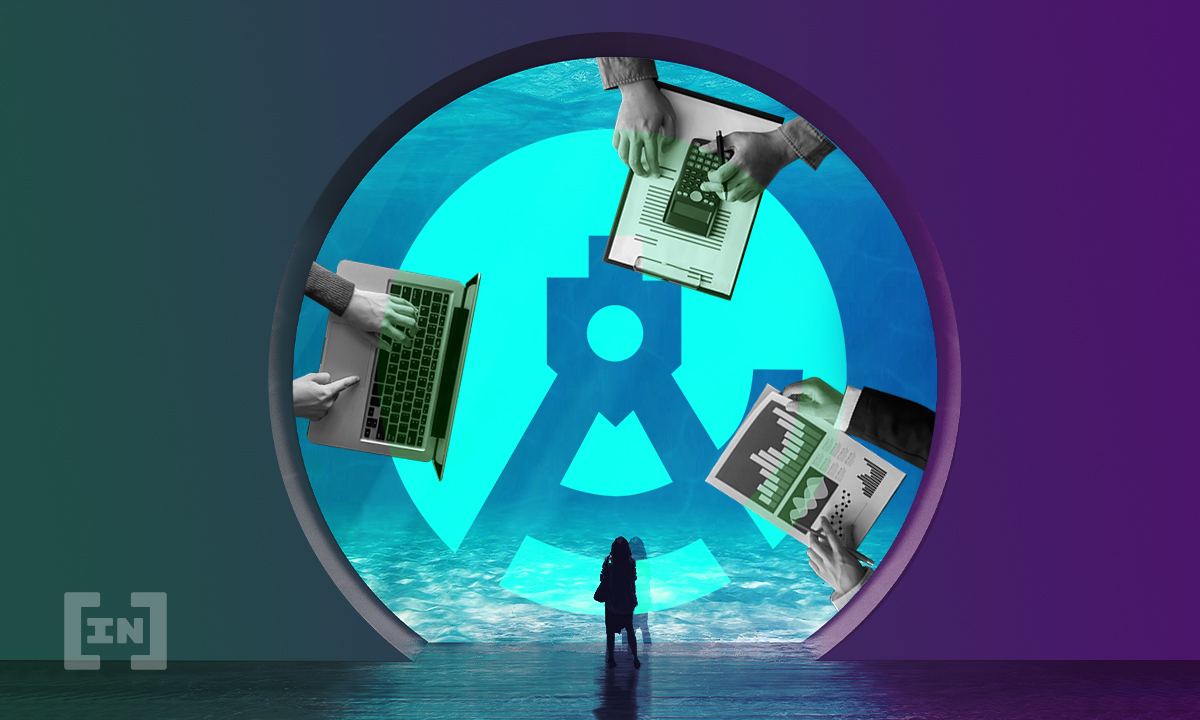Argon Puts Work on the Blockchain to Get Freelancers Paid
5 min readTable of Contents
These days, it seems like everything is on the blockchain, now including freelancing. Argon recently launched the first decentralized freelance platform built on the Binance Smart Chain (BSC) network.
Freelance work has exploded during the months of quarantine we’ve all endured during the Covid-19 pandemic. In that time, many jobs have moved from the office into the online space frequented by freelancers.
Demand for freelancers grew as more people began working from home. Traditional freelancing platforms such as Fiverr and Upwork saw an uptick in attention as most employers began hiring remotely.
In addressing this supply, Argon is taking a unique route through its first blockchain-based freelancer platform. Through this route, they aim to make networking cheaper and easier.
Argon background
Argon is a decentralized platform that eliminates commission charges and removes the need for annoying identification confirmation.
Argon’s native token, ARGON, is one of the big reasons they can offer membership with zero commission payments.
Unfortunately, ARGON has hit a rough spot since peaking at $0.449 in April. At the time of writing, ARGON is trading at $0.09 and down 7.5% in the last 24-hours.
Another hurdle that Argon has already crossed is an audit from CertiK. Those audits include rigorous formal identification, static analysis, and a full manual review.
Features for remote freelancers
Argon brings some unique features to the freelance industry alongside its lack of commissions. Perhaps the most significant feature is how Argon deals with disputes on projects.
The platform uses approvers that work as intermediaries between those seeking work and those looking to hire. The approver exists because Argon is a completely decentralized platform. Therefore, it cannot intervene in disputes on the platform.
If an employer takes issue with the freelancer’s work, the approvers step in and serve as mediators. Approver accounts receive random assignments. They have five days to approve the assignment.
If the approver sides with the worker, the funds are immediately transferred to the freelancer via smart contracts, and the job is terminated.
However, if the approver decides the work does not stand up to the contract, the employer receives a refund, and the job is canceled. To become an approver, you need to hold at least 20,000 ARGON in your crypto wallet.
Other notable features include the ability to approve or reject any project offered to them, with the approvers earning tokens for each job. The number of tokens doled out is based on Argon’s algorithms.
A smart contract first
The platform is also the first to use smart contracts to guarantee authentication and also to store work fees. Users have the ability to create posts with the option for supplemental notes.
Part of the platform’s priorities is to ensure that freelancers are paid on time when the job is complete. The ArgonShield smart contract is utilized to make sure workers aren’t waiting around to be paid for their work.
Once the work is approved, the fee is sent to the smart contract and stored there until they receive the job. This move is in response to the common issue of freelancers being ignored when it comes time for compensation. The stored money is totally transparent and can be seen by anyone on the smart contract.
Future roadblocks for the platfrom
While Argon’s business model is solid, some roadblocks are still standing in the way of mainstream adoption.
First and foremost are Argons competitors. There are two main services currently in place that place freelancers with employers, Fiverr and Upwork.
While Argon does offer some advantages, specifically the lack of commission fees that can be up to 40%, they will have to deal with the established players to really make a dent in the community.
The need for Argon to tempt away a significant number of clients from other services is another cause for concern. While the features and ideas behind Argon are solid, the move would require many to learn a lot about the world of blockchain ahead of time.
While many people understand the basic idea behind cryptocurrencies and blockchain, it might not be enough for them to jump ship to a new product.
When terms like smart contracts and native tokens are being thrown around, it is reasonable to assume that some potential clients will decide to stick with the service they know.
To combat this, Argon’s website does a good job of offering guides on understanding the blockchain, but that still might be too much of a commitment for some.
Next moves on Argon’s roadmap
Argon keeps a detailed roadmap of which features they have completed, are working on, and have on their to-do list.
The list also has a pair of featured requests which include incorporating an NFT marketplace and an upgrade to Argon 2.0. Those two are considered large overarching initiatives and are more long-term goals than anything Argon is actively working on.
Some of the features that are currently in progress include finding new investors to move the project forward, getting listed on centralized exchanges, and a complete re-design of their frontend.
One of the more interesting things listed on Argon’s to-do list is to add features for staking and farming the ArgonToken.
For those interested in farming $ARGON, liquidity must be provided via PancakeSwap. A Cake LP token is given for support. Farming on Argon will provide twice the profit that staking will.
Staking on Argon requires keeping your assets locked for a certain amount of time. From those locked cryptocurrencies, users will earn a reward during the time you lock them.
Argon is one of the more recent examples of how blockchain technology can work outside and alongside the financial world.
As the adoption and acceptance of crypto and blockchain grow, it is expected that more of these kinds of projects will be introduced as well.
The post Argon Puts Work on the Blockchain to Get Freelancers Paid appeared first on BeInCrypto.







